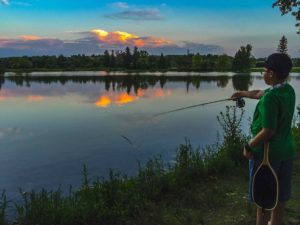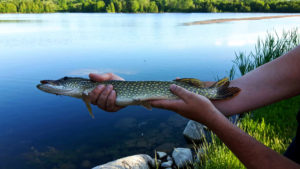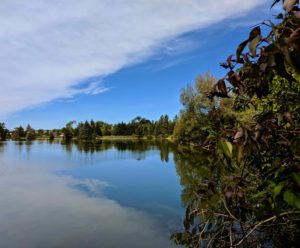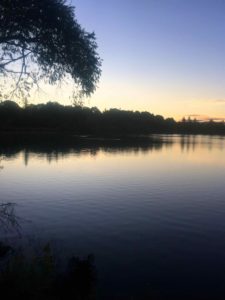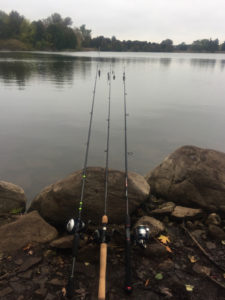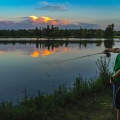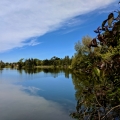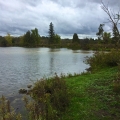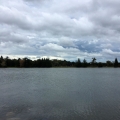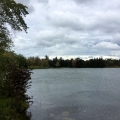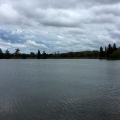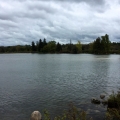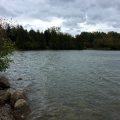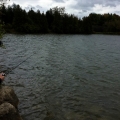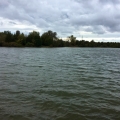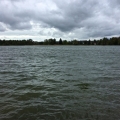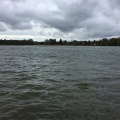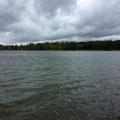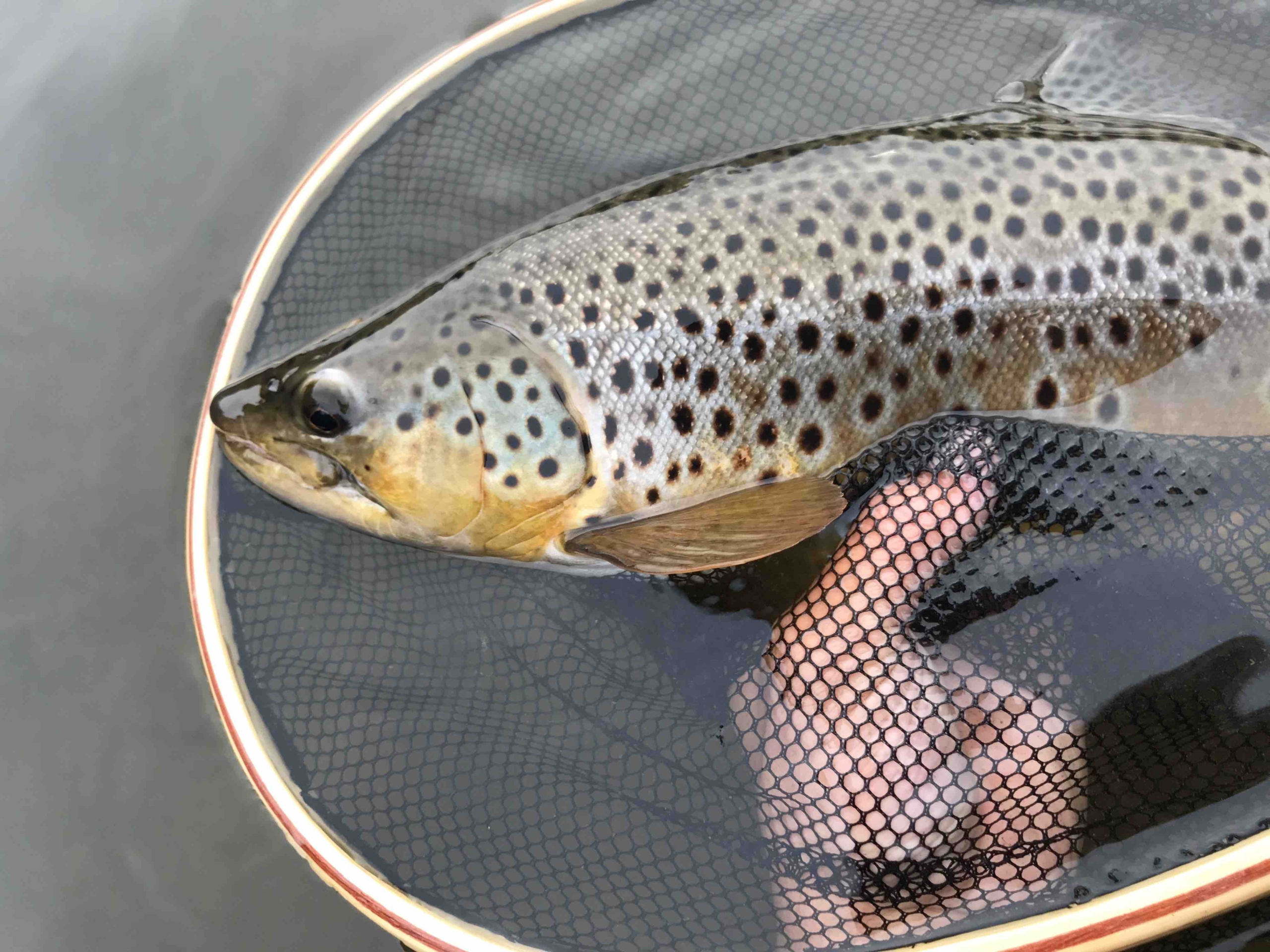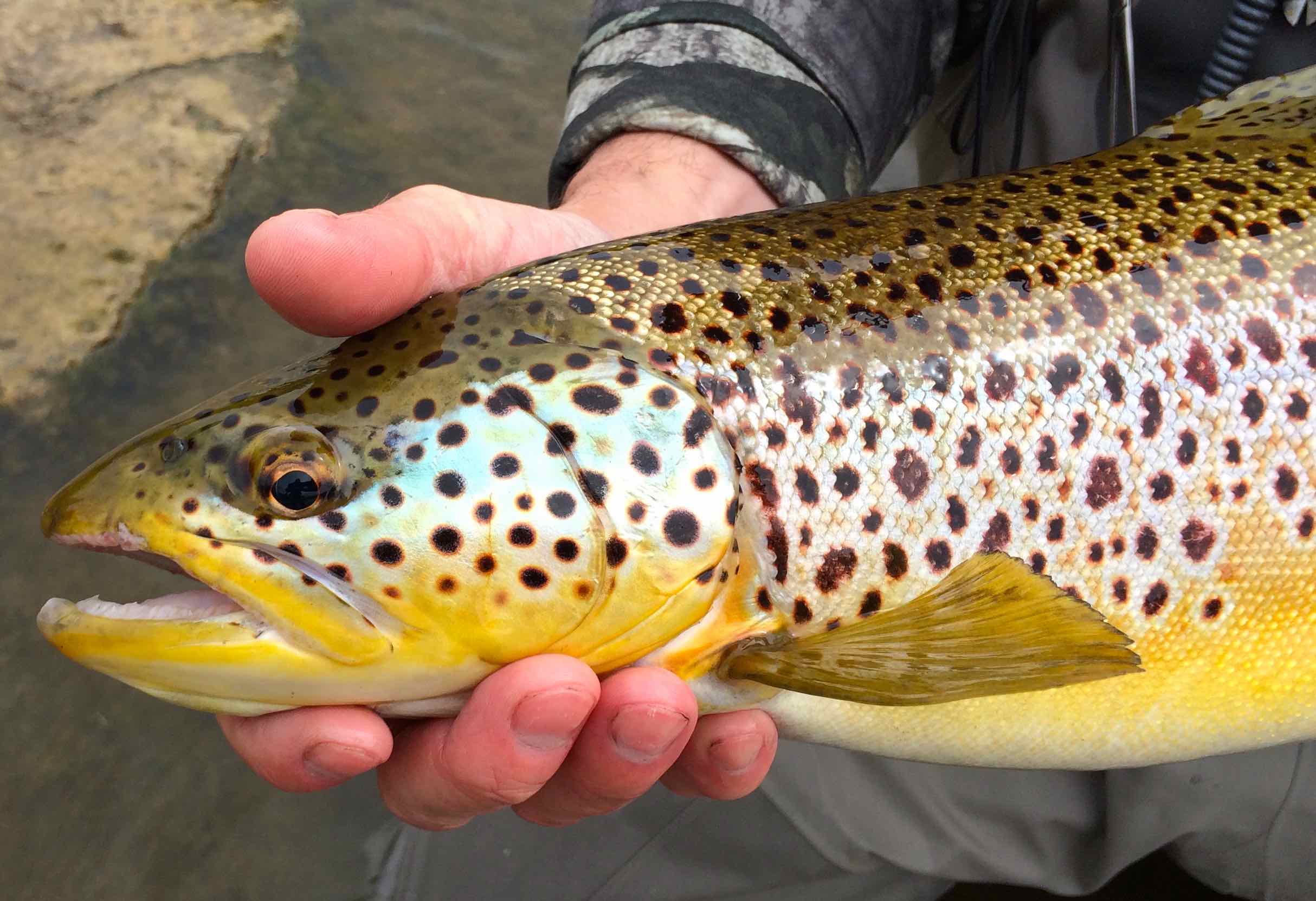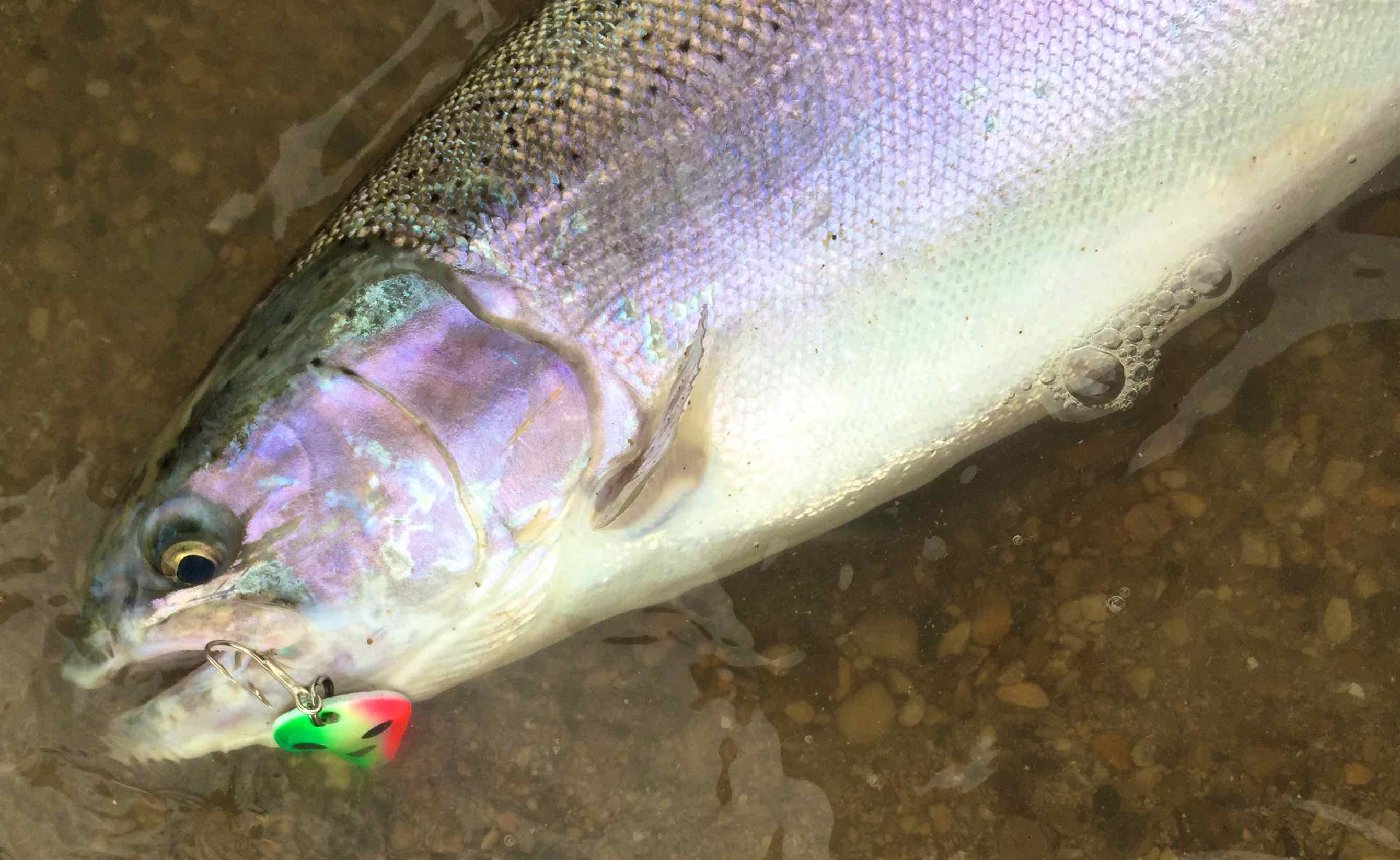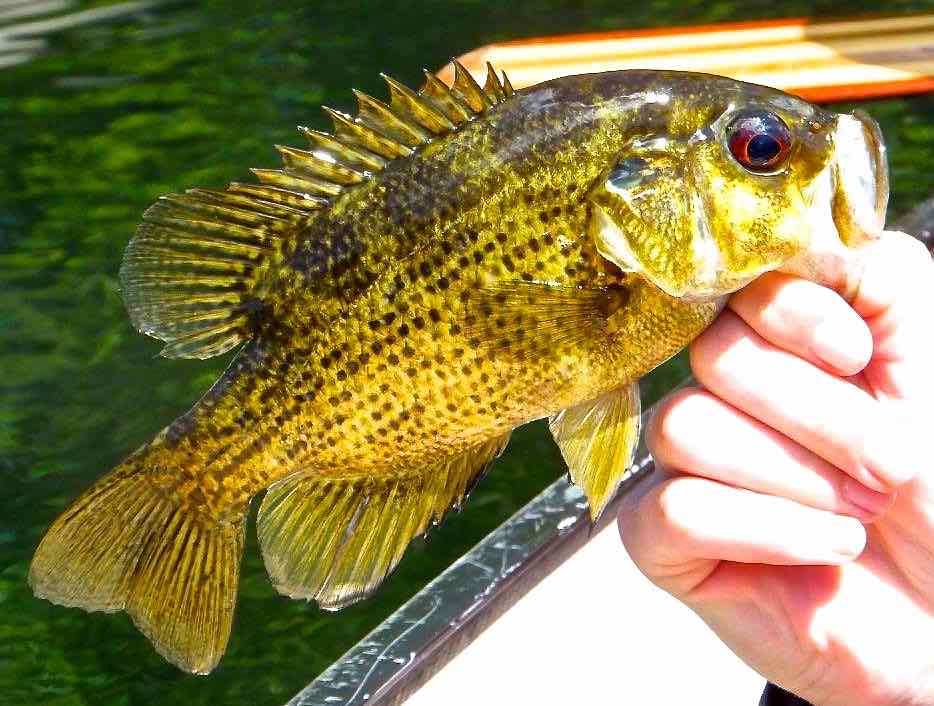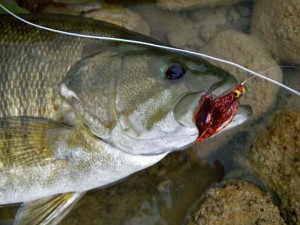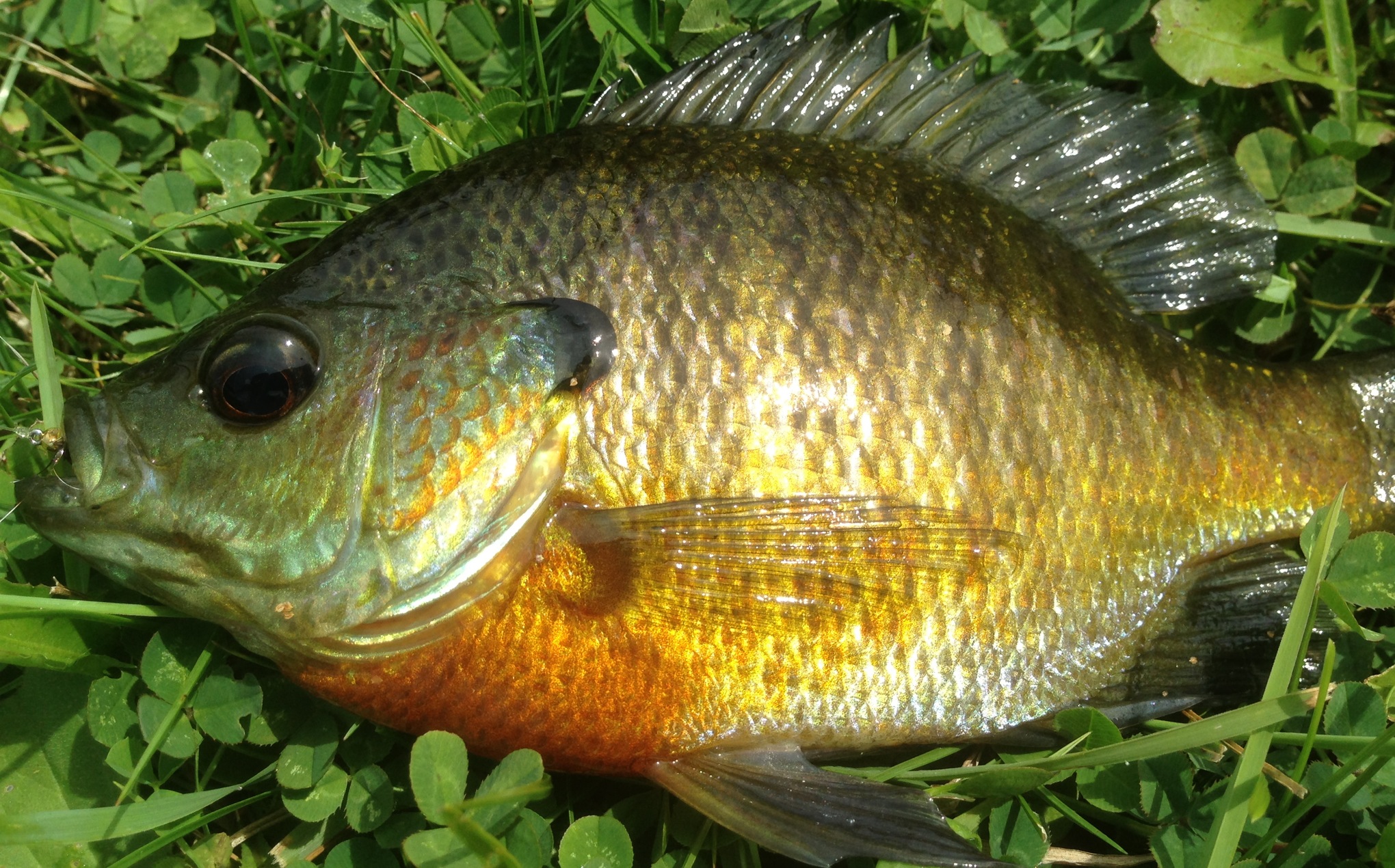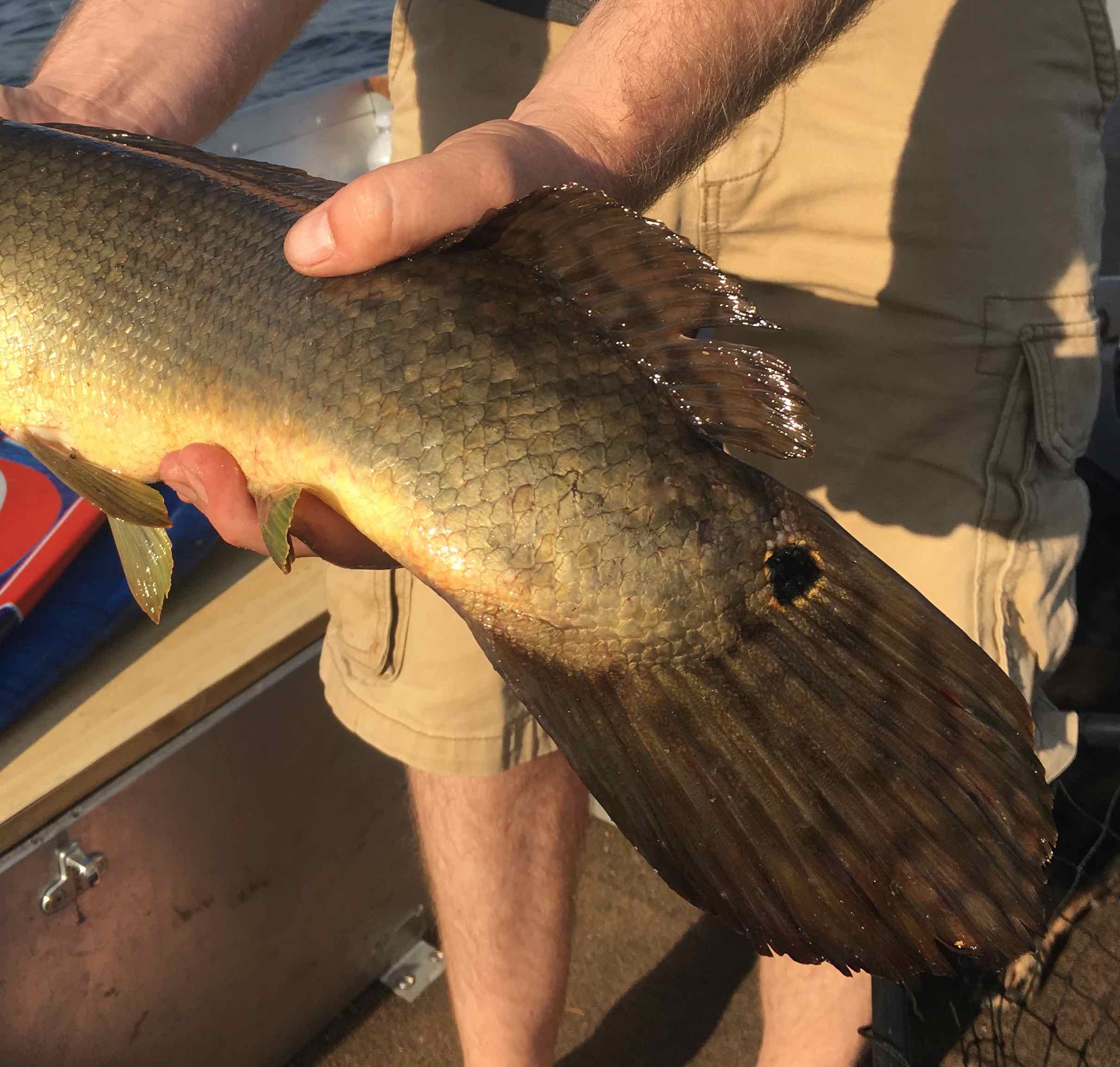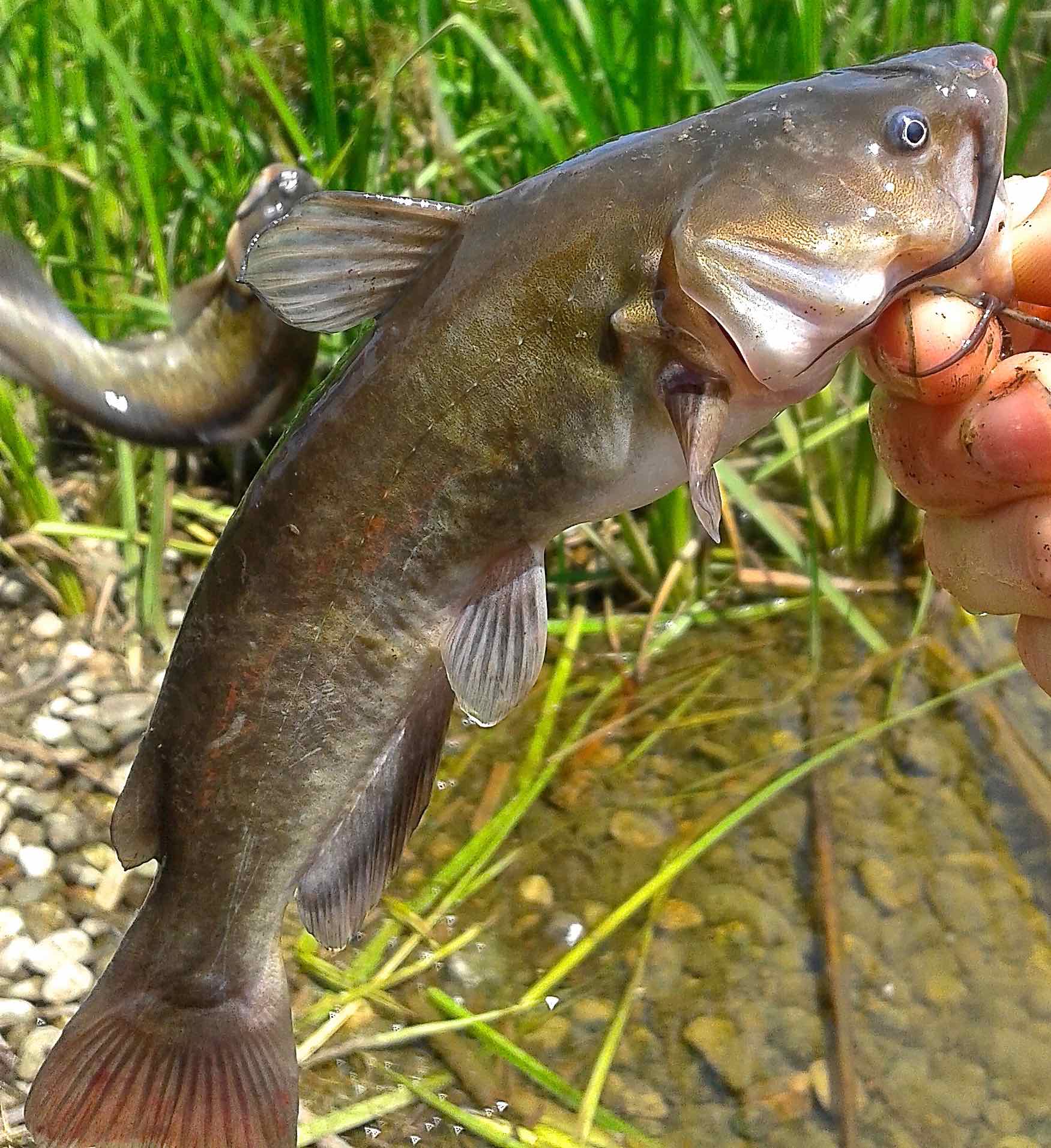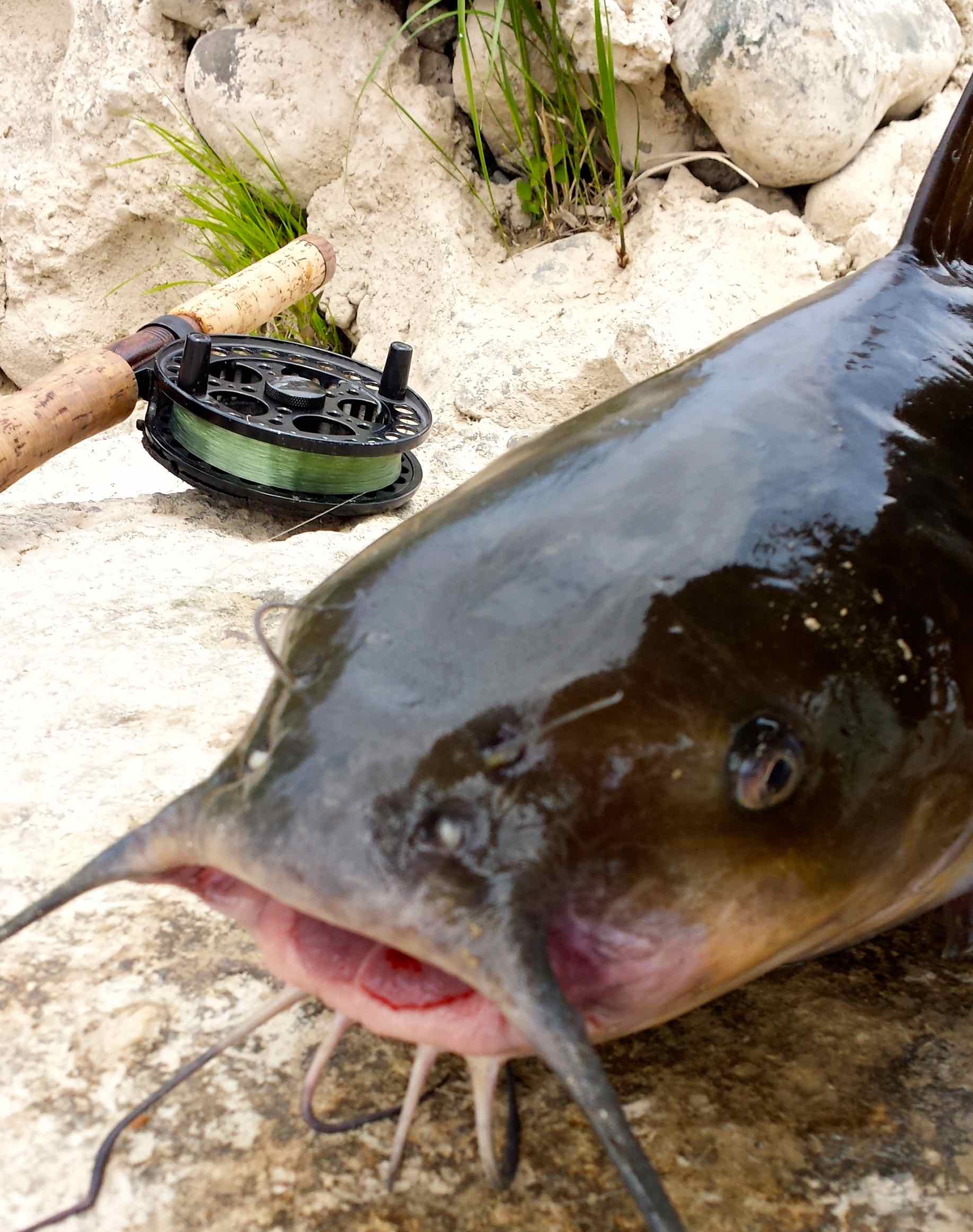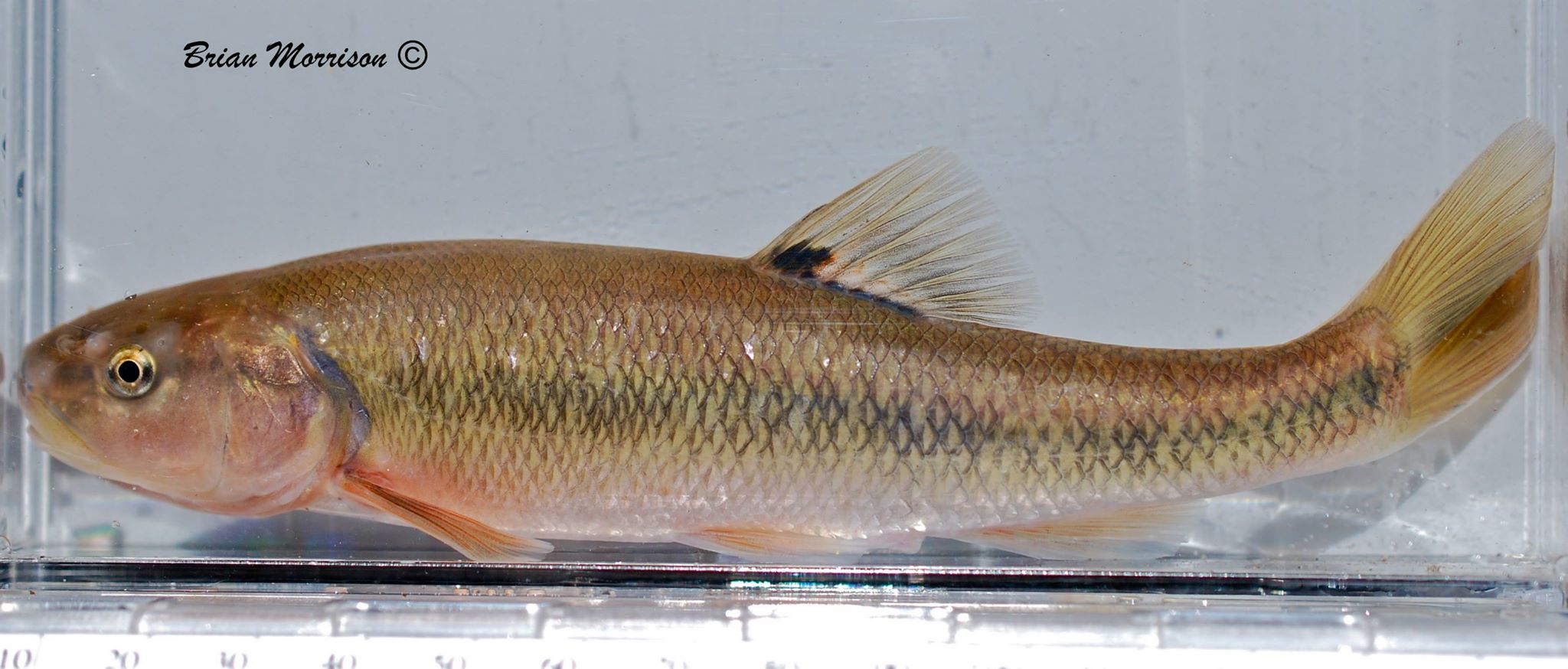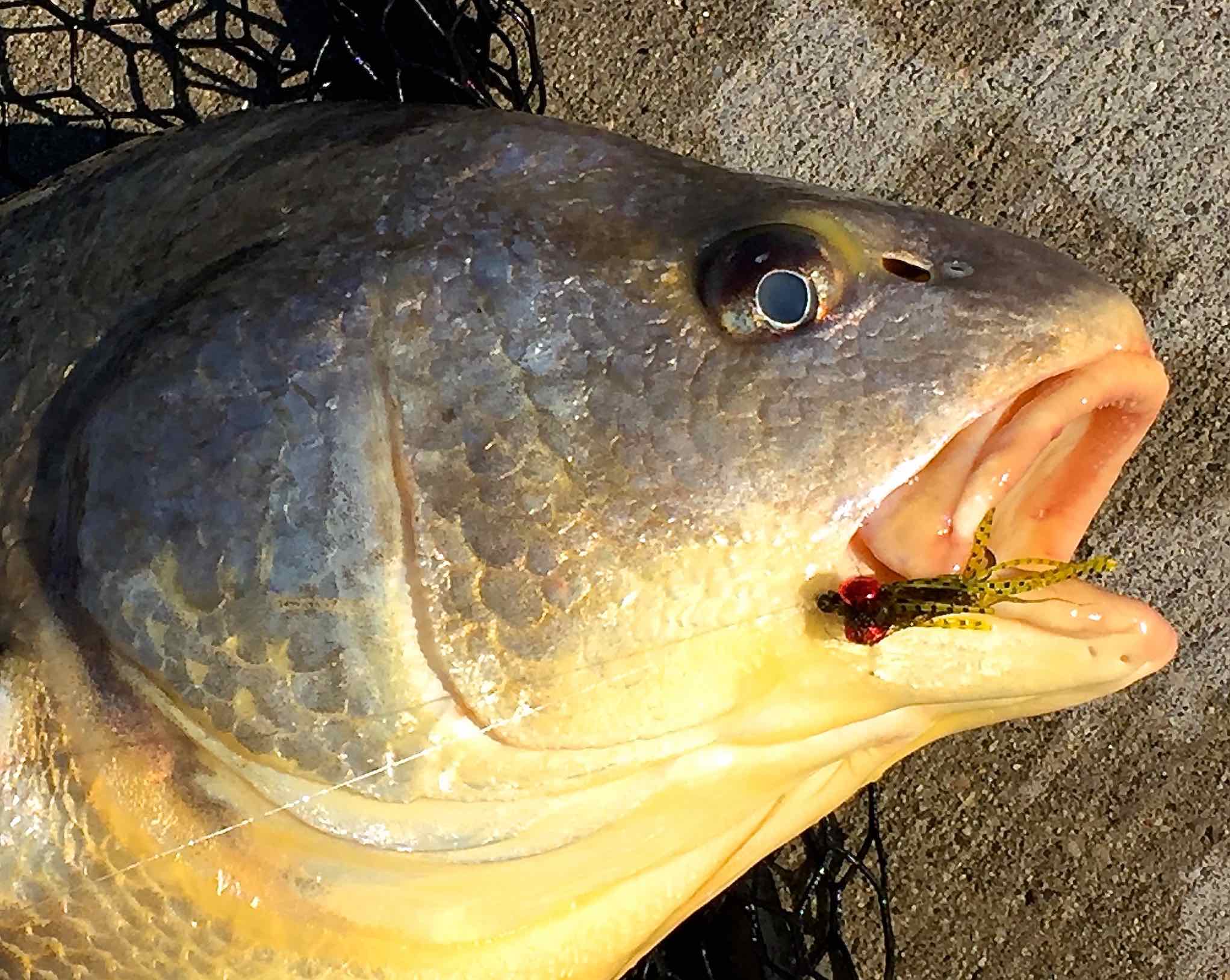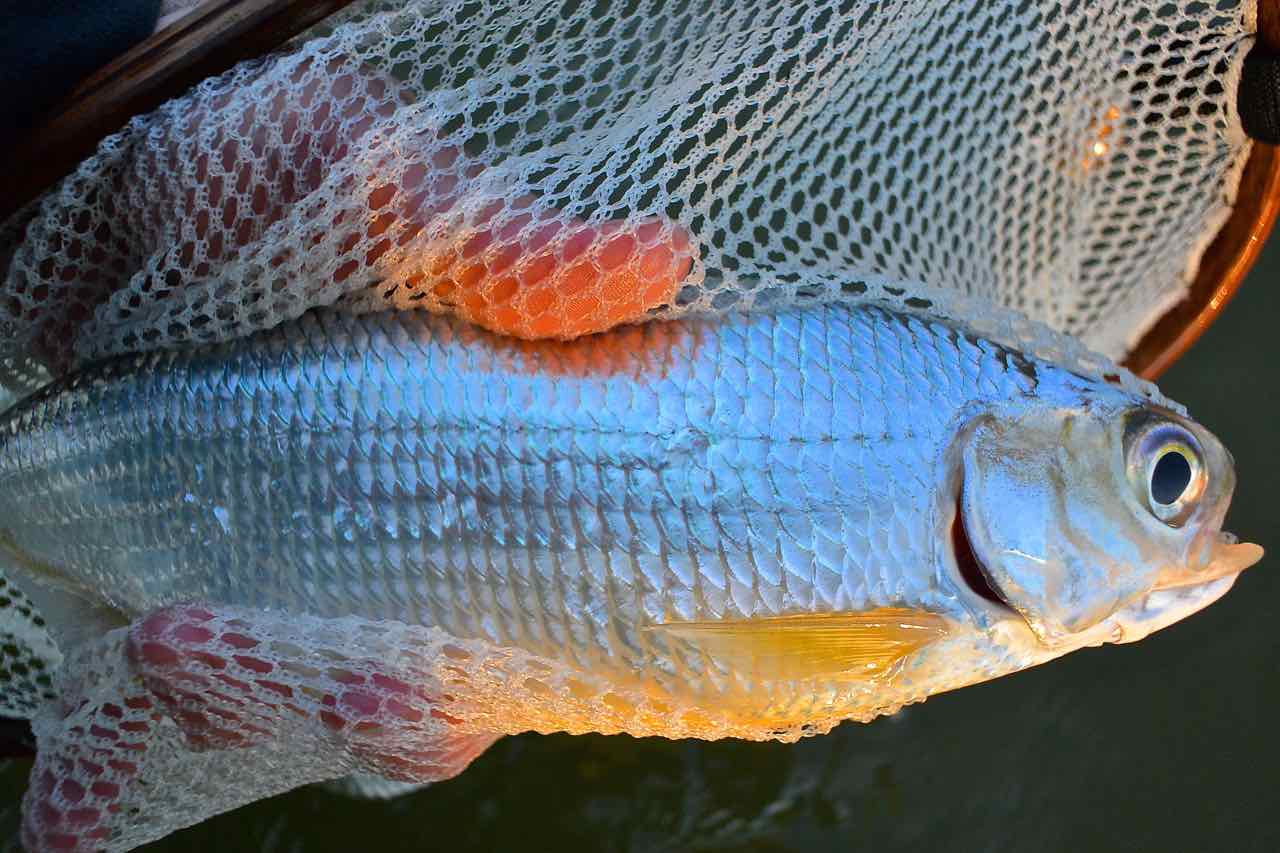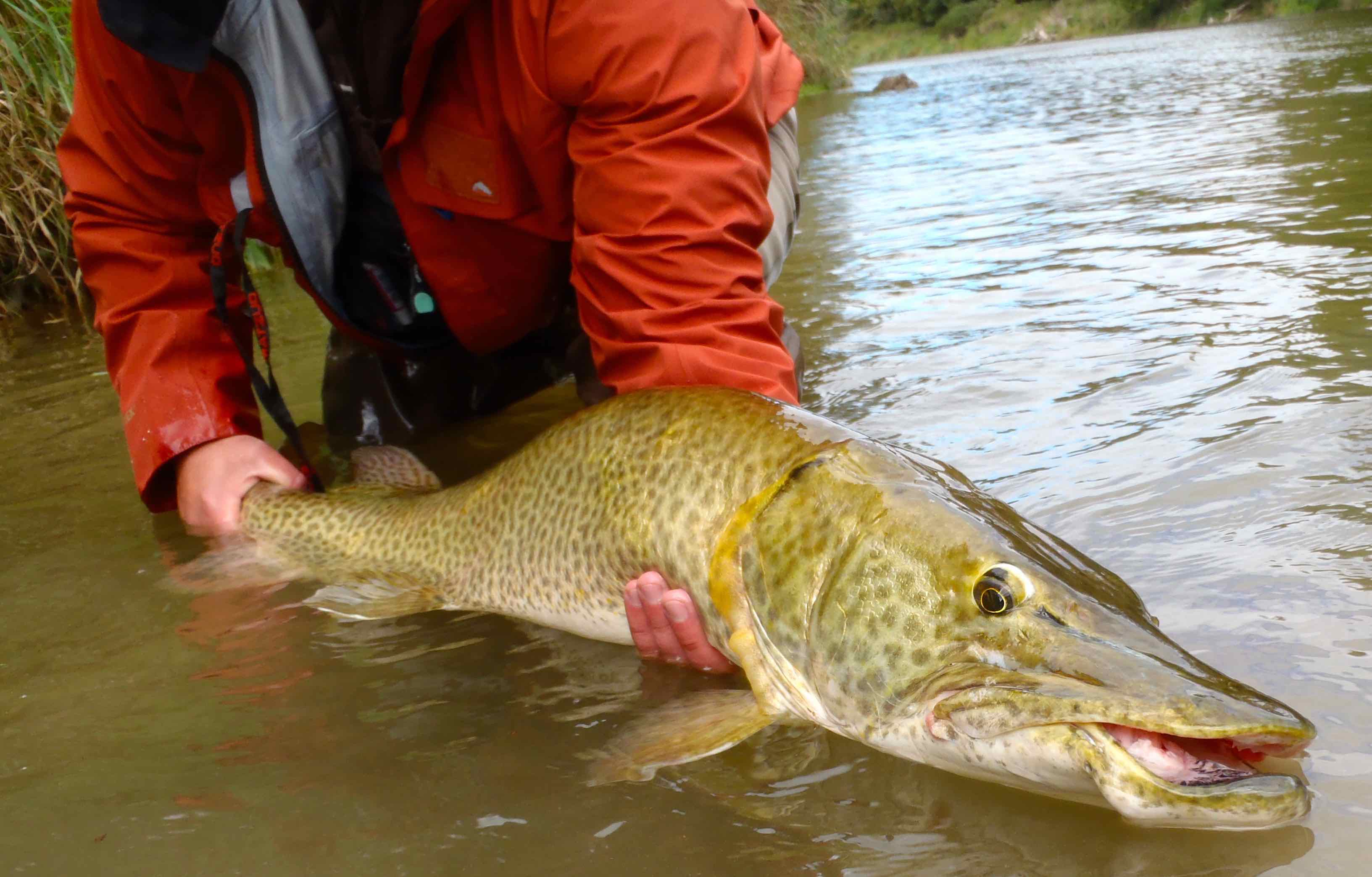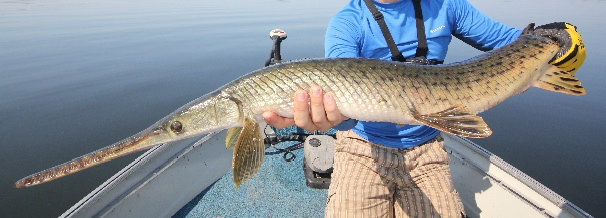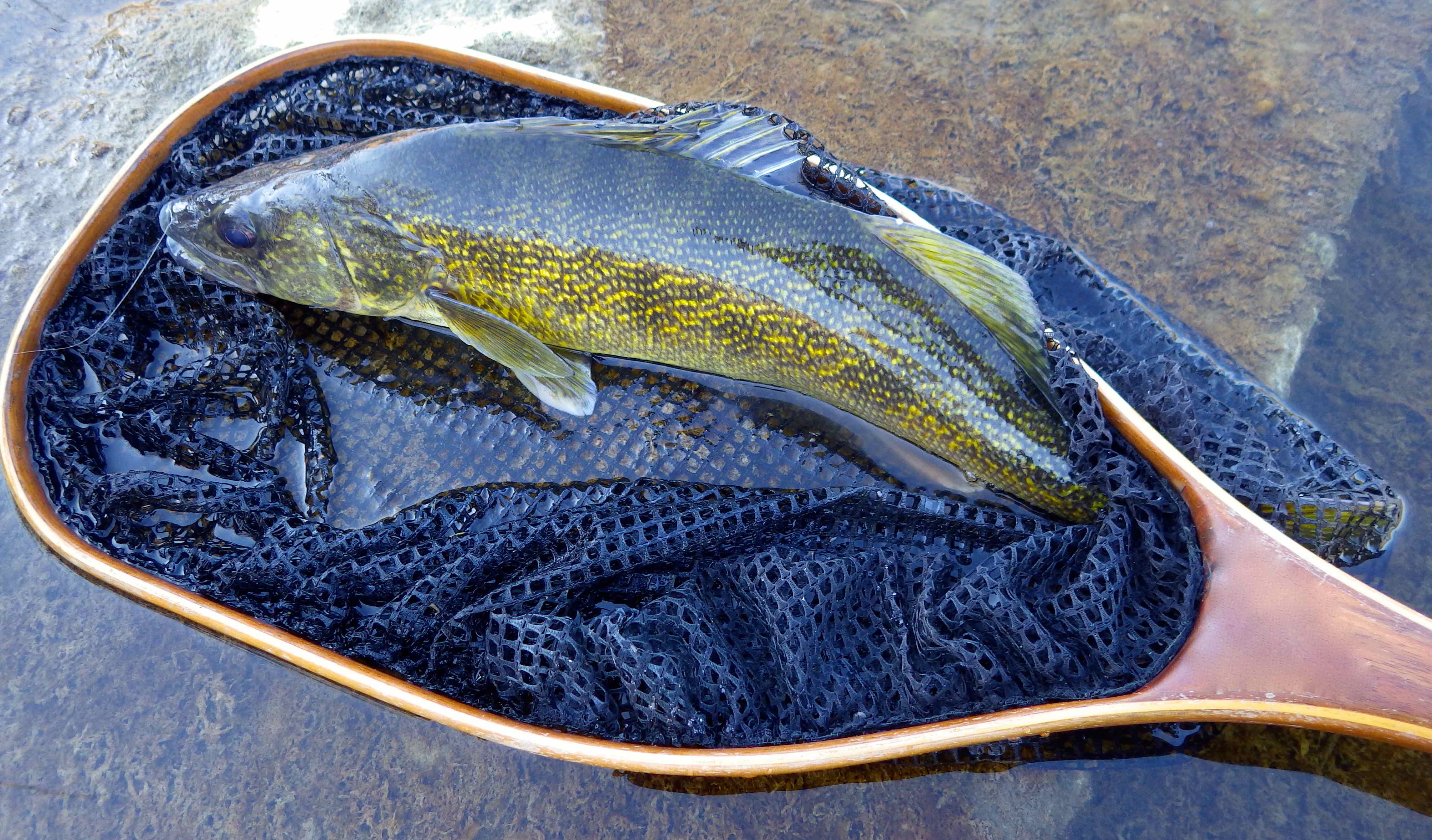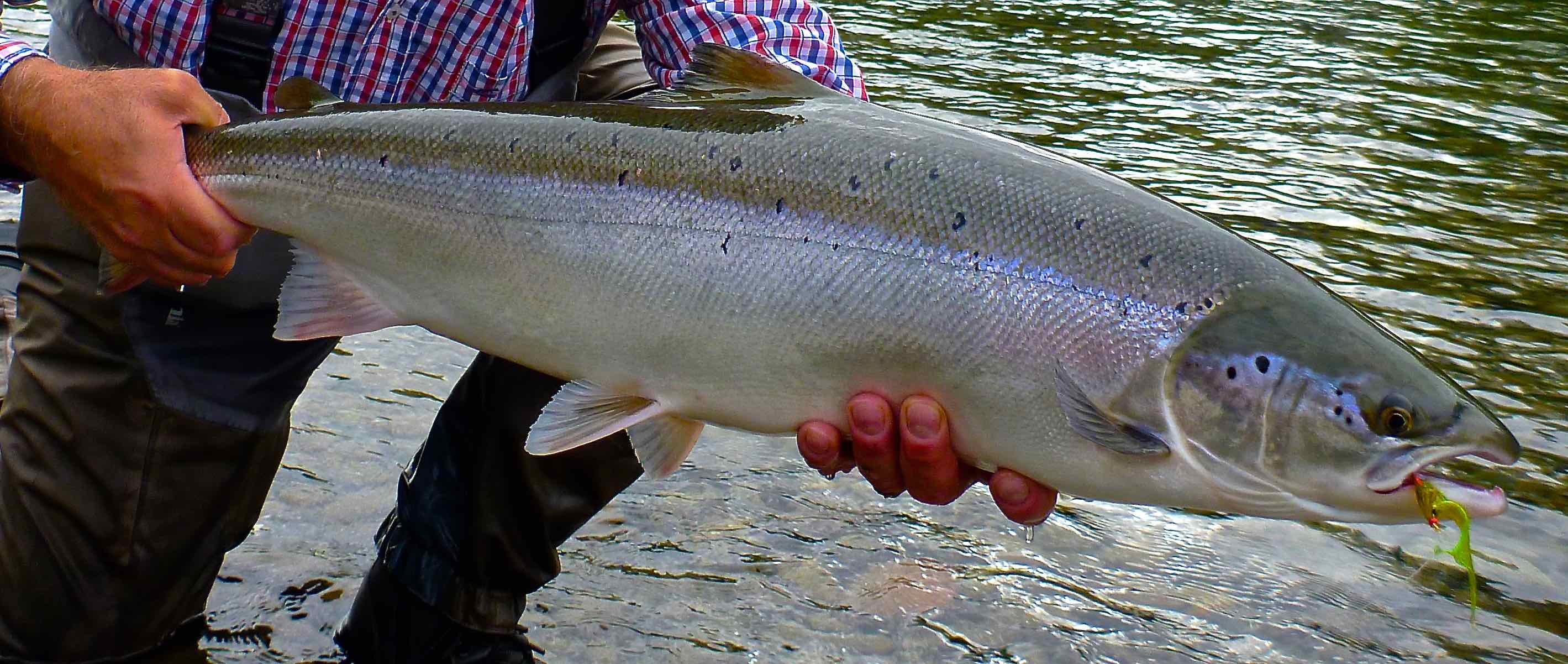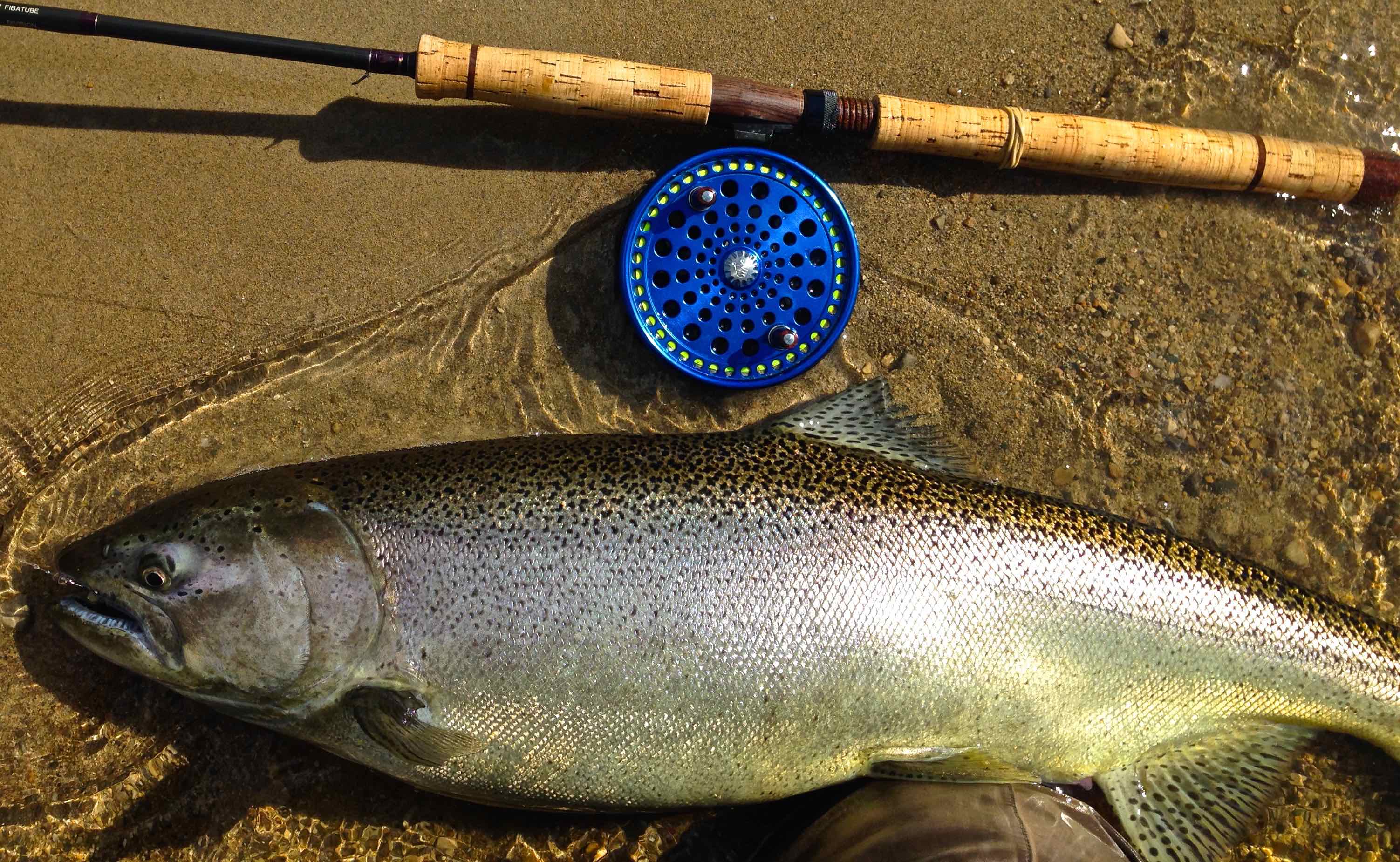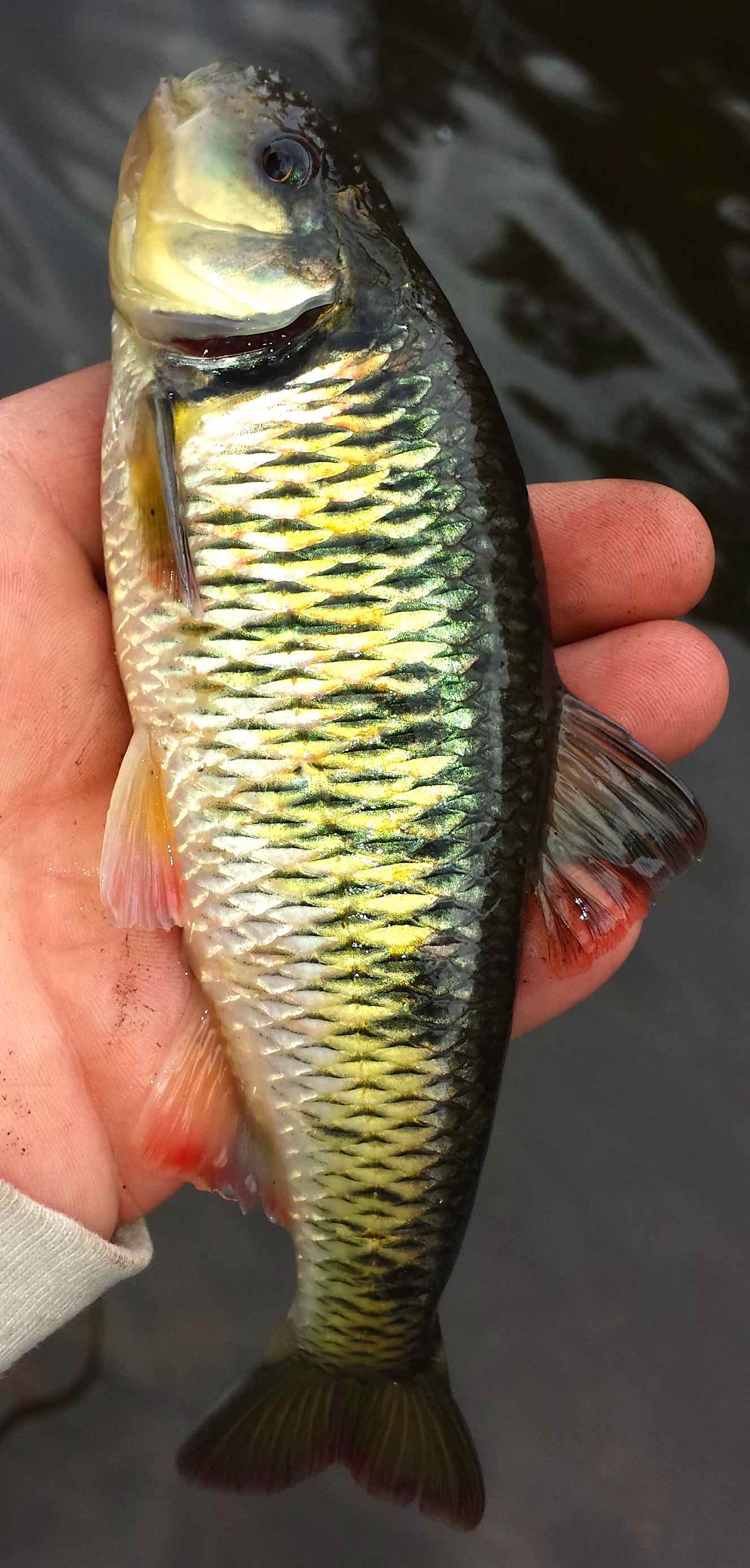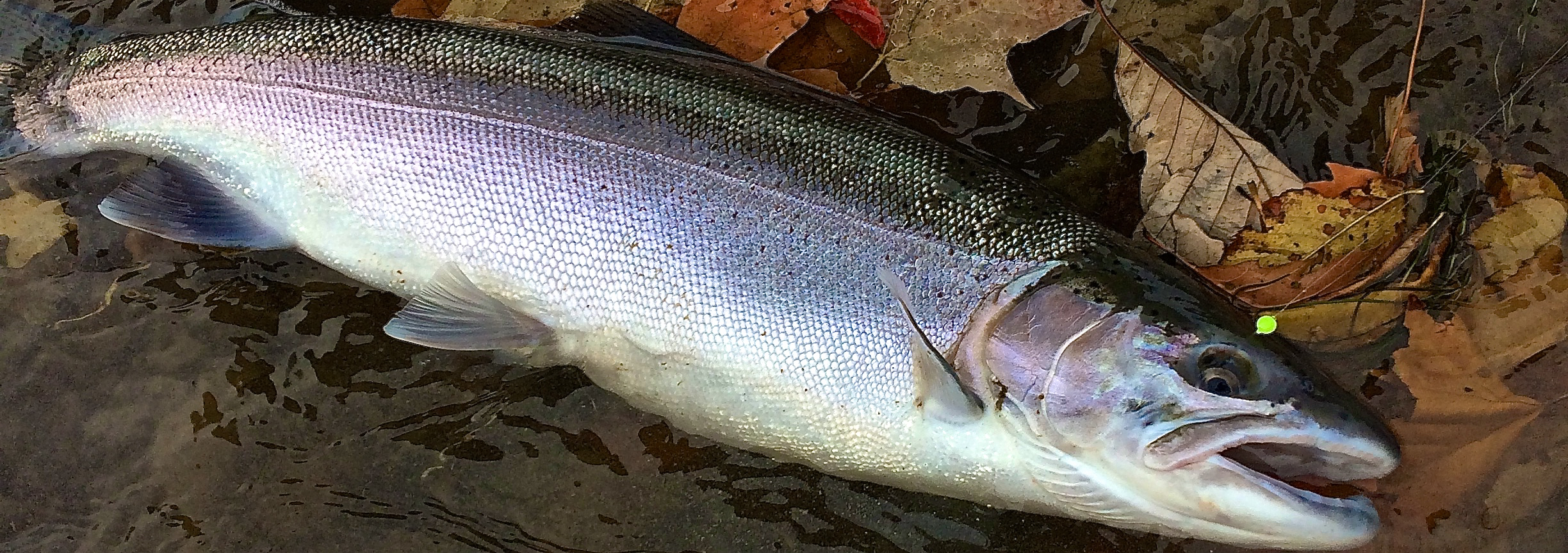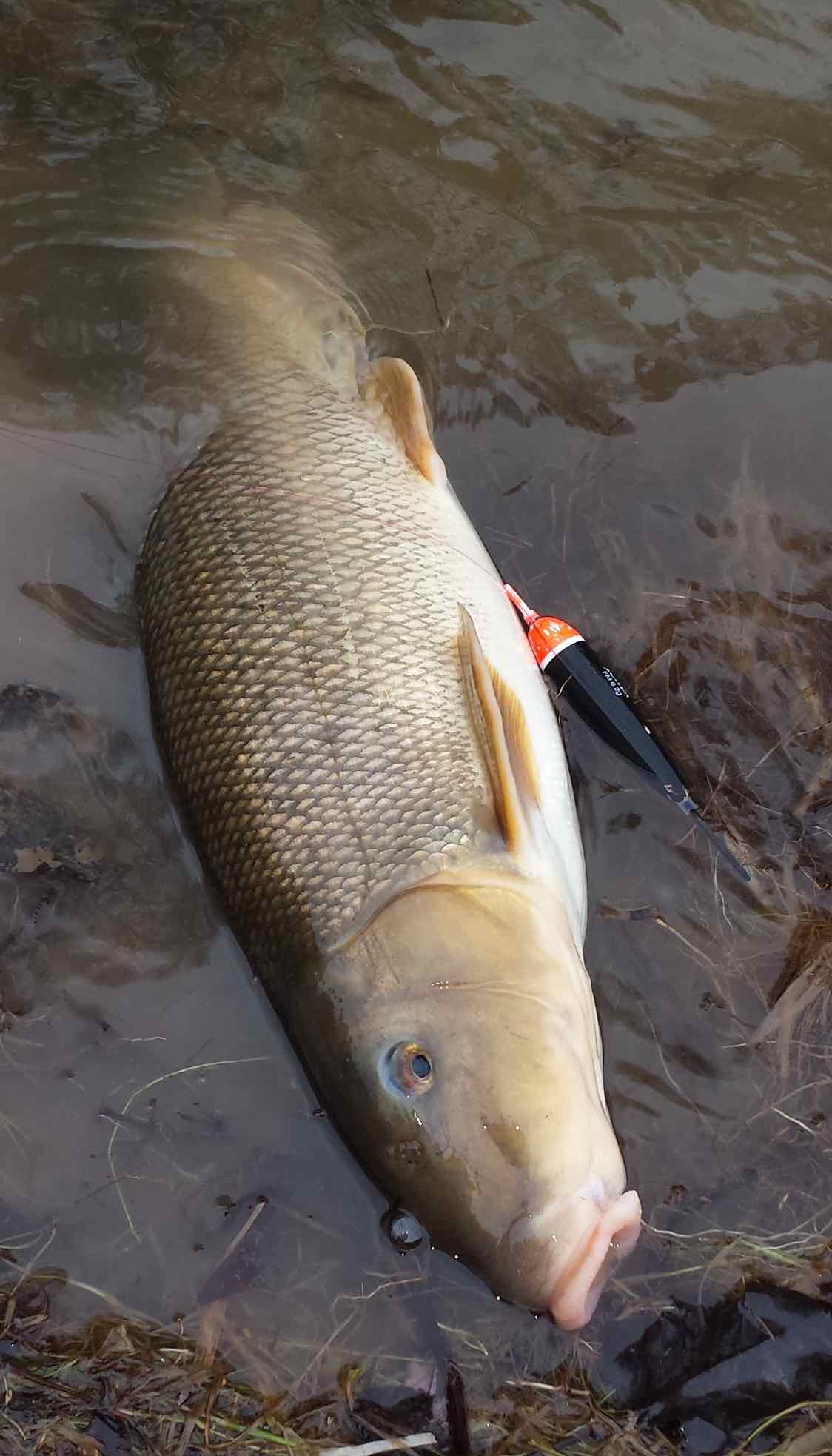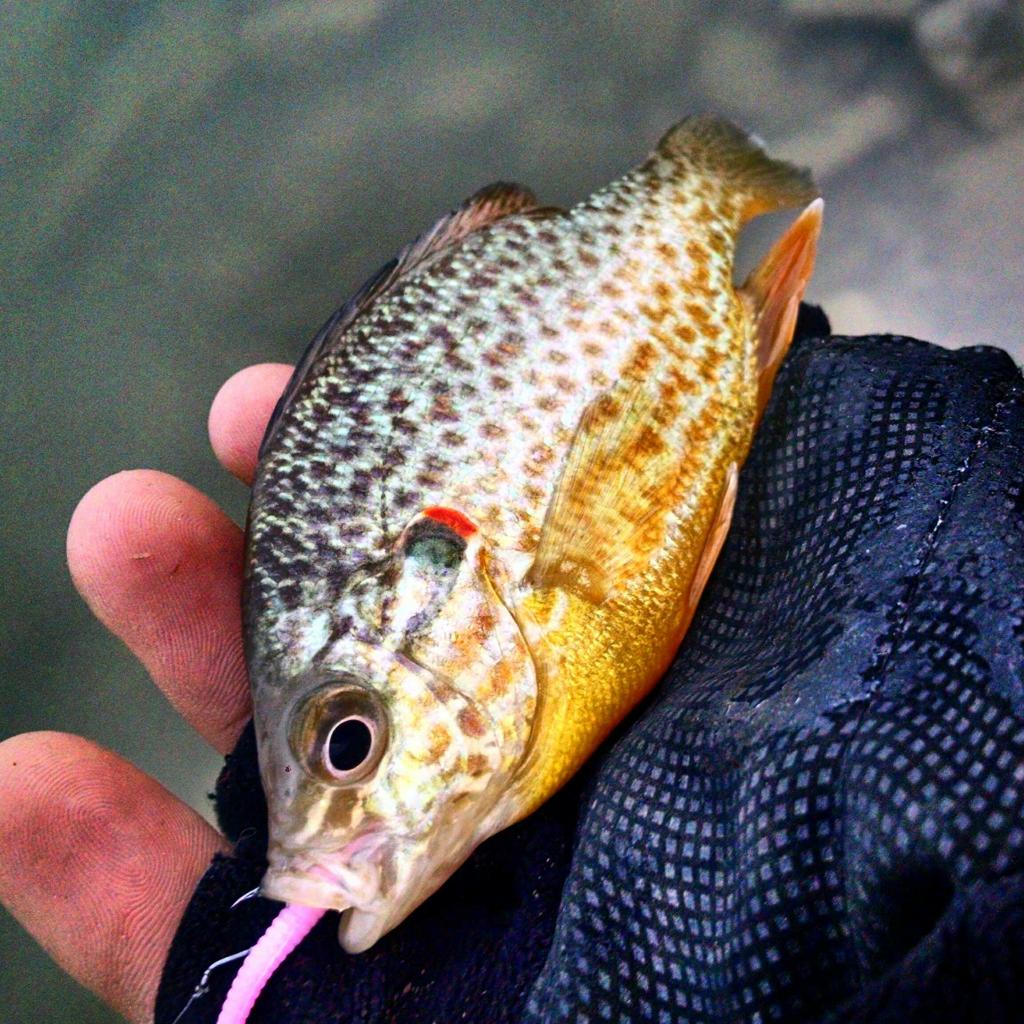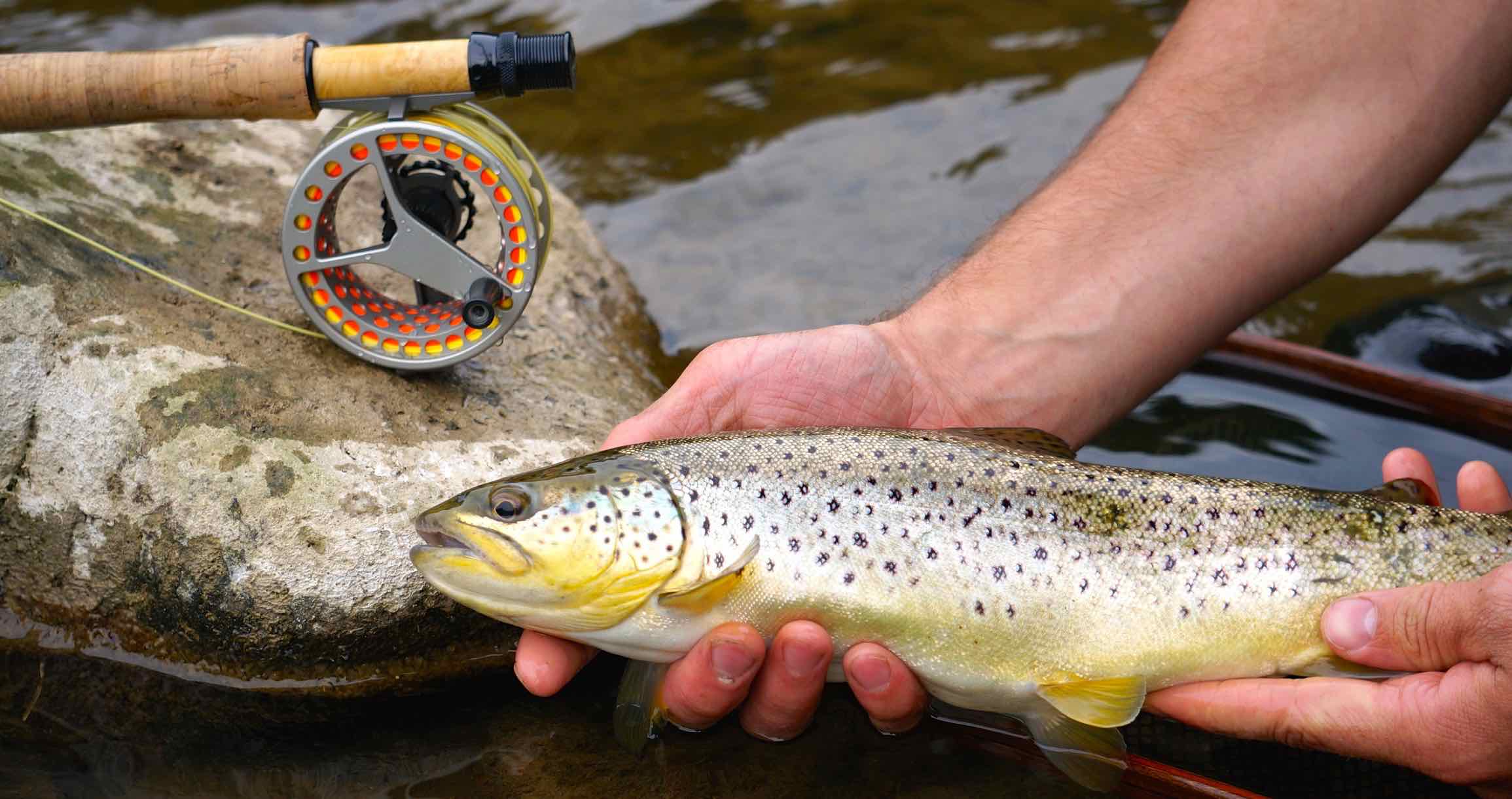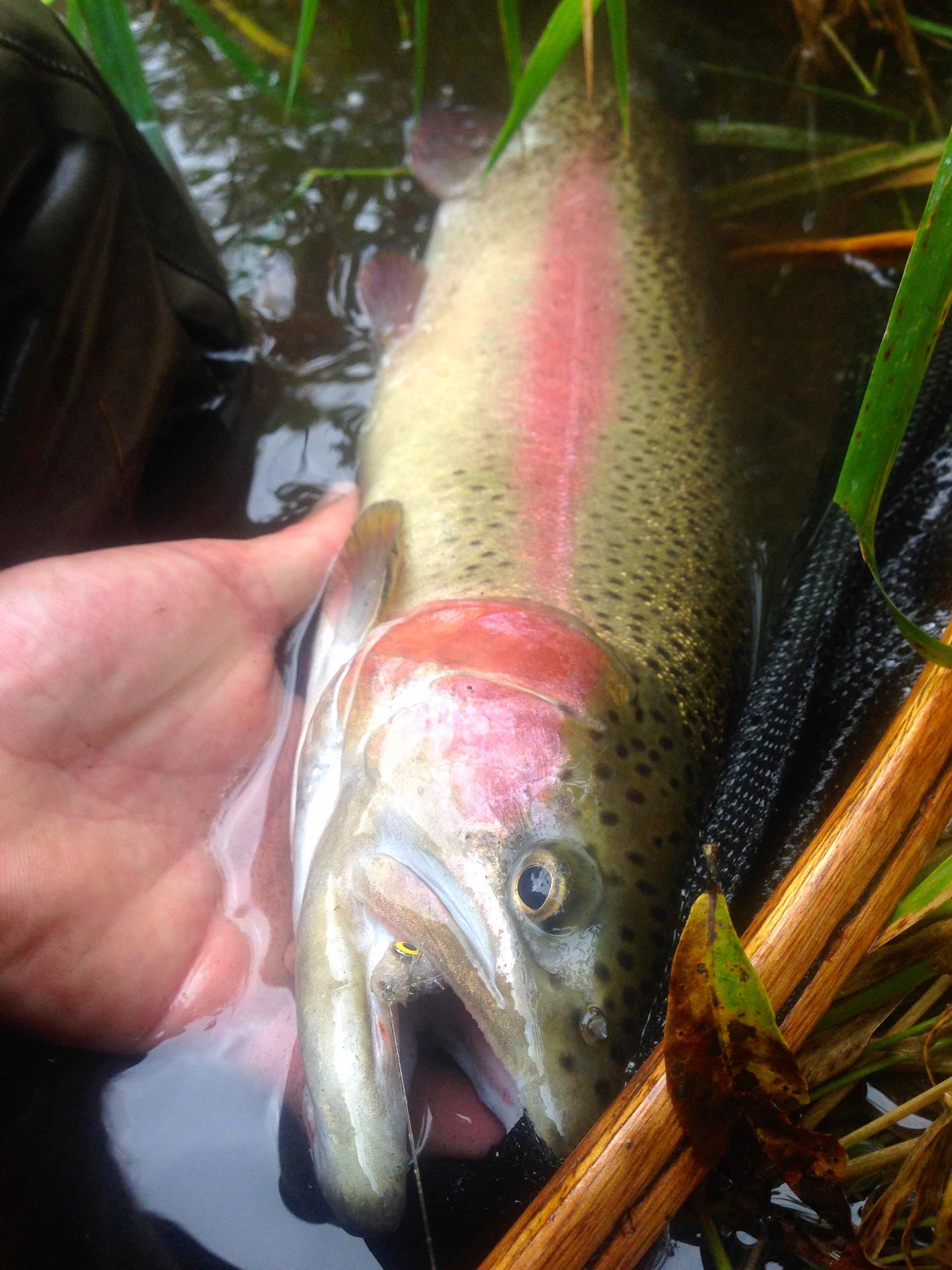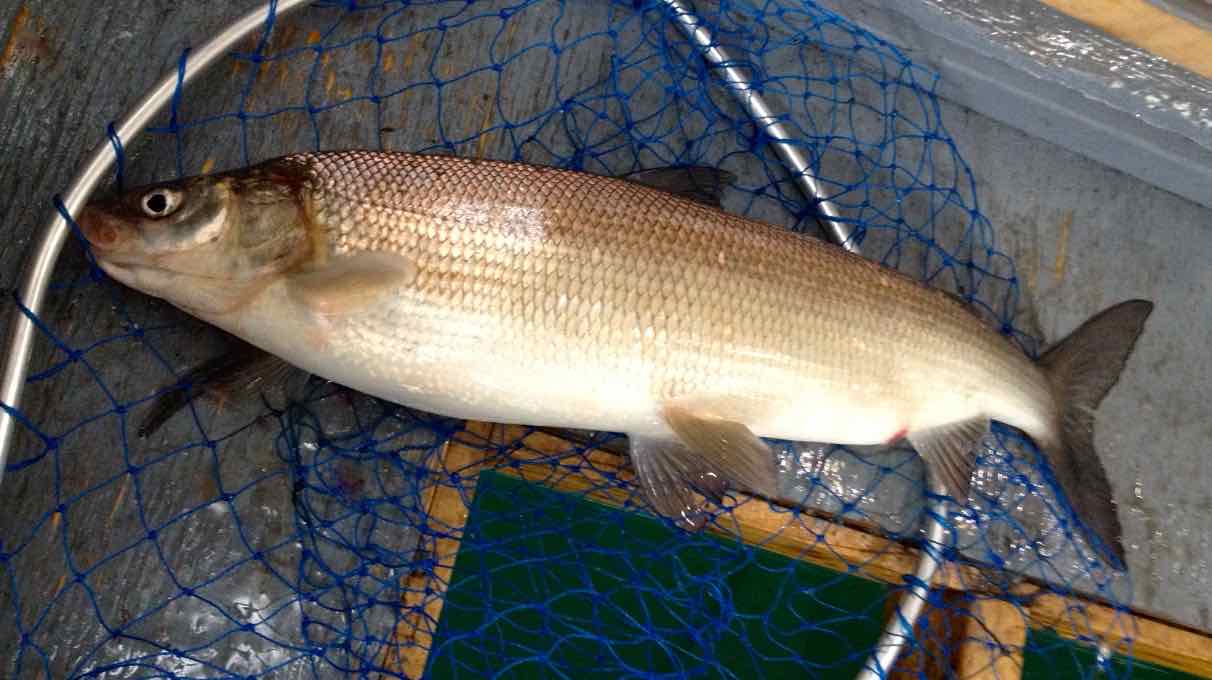The Guelph Correctional Centre Ponds – The “OR” * A gift to the city:
Threatened turtle species one of the reasons fishing is now banned in York Road ponds:
Prison labour created much-loved Guelph Correctional Centre Ponds – The “OR” off York Road.
We must preserve this gift to city.
Below the Tudor-style gatehouse, children catch crayfish in the creek.
Upstream, a bridal party poses for pictures on an ornamental stone bridge.
Someone on an afternoon stroll through this idyllic setting could be forgiven for thinking they are on the grounds of a former resort or a provincial park but, in fact, it is the site of what was, at one time, the largest prison in Canada.
The Ontario Reformatory that would later be named the Guelph Correctional Centre came to Guelph in 1909 on the crest of a progressive political wave and a seismic shift in the way the province dealt with convicted criminals.
In 2002, the prison closed and has remained unused other than for the occasional film shoot or for training police and emergency workers.
The Guelph Correctional Centre Ponds – The “OR” and the grounds continue to be popular with hikers, dog walkers and for fishing for the local fish species.
Grottenthaler said the large population of Canada geese on the site has always been a problem for keeping the grounds and waters clean.
Deep-water signs have been posted around the property since The Guelph Correctional Centre Ponds – The “OR” were created, warning visitors there is no swimming or boating allowed.
* Article from The Guelph Mercury Tribune
July 2016 – Province outlines its plans for upcoming work on the Guelph jail lands
By Jessica Lovell
The Guelph Correctional Centre’s wetlands, wildlife, hiking trails have been called one of the city’s best opportunities for “a real nature-people connection.”
It’s one of the most significant green spaces within city boundaries, and its potential has community members salivating.
“This is just an opportunity that we shouldn’t miss,” said Guelph resident Stan Kozak, speaking of the unique possibilities for an area of the city commonly known as the jail lands.
Kozak was one of a few dozen people who came out to an open house at city hall on Tuesday evening to learn about the province’s plans for the former Guelph Correctional Centre on York Road.
A nature lover who has taken part in community activities focused on the unique natural features of the site, Kozak said he was interested in taking part in community discussions to come up with creative uses for the lands.
It’s probably our best opportunity for a real nature-people connection. You don’t have to go to the cottage; you could get on your bike and go to this place.
— Guelph resident Stan Kozak, speaking about the nature trails at the jail lands and the opportunity they represent for the city
“It’s probably our best opportunity for a real nature-people connection,” he said, noting the presence of wetlands, wildlife, hiking trails and more. “You don’t have to go to the cottage; you could get on your bike and go to this place.”
But exactly what will become of the property in the future is still somewhat up in the air.
Tuesday’s public information session, hosted by Infrastructure Ontario, was meant to keep the community up to date on some of the work that will be happening over the next year in preparation for its future use.
“It’s not anything revolutionary,” Infrastructure Ontario spokesperson Ian McConachie said at the meeting. “The site’s not going to change dramatically.”
The work being done is work that it’s prudent to do as good property managers, said McConachie.
The project will start this summer with work on the property’s hiking trail. A crushed stone covering will be applied to the trail to prevent soil erosion. Otherwise, the trail won’t change, but access to the area will be closed while the work is underway.
The province then has plans to change vehicular access to the site.
Slated for this fall, a new access road is to be built off of Dunlop Drive, and there is a corresponding plan to close the existing York Road entrance.
The reason for this plan is to preserve two culverts, or small bridges, located along the York Road driveway by preventing use by heavy vehicles, said McConachie.
“They were built by the prisoners in the 1920s and ’30s and they’re heritage (features),” he said. “Use of cars on those bridges is a concern.”
The culverts, considered part of the property’s heritage landscape, are currently in good condition, but repeated use by cars and trucks is undesirable wear and tear, McConachie said.
The design for a gate at the York Road entrance has not yet been finalized, but it is not the province’s intention to restrict pedestrian or bicycle traffic on the site, he said.
There will no longer be parking allowed on site, as the new access road will be for service and emergency vehicles only, he said.
Once the new access road has been completed, heavy equipment can be brought in for the next stage of the project – the demolition of a couple of buildings on the site.
The culverts in the York entrance “were never designed for that type of weight,” said McConachie.
The demolition work, slated to take place in the coming fall and winter, involves the former laundry building and one other nearby building, which needs to be removed in order to clean up some contaminants found on the site.
“All this is interrelated and interconnected,” said McConachie of the way the project will unfold.
Because of the laundry building’s former use, there is contaminated water under the building from fuel and dry-cleaning chemicals that the province wants to clean up.
According to information presented at the open house, environmental studies have shown that the contamination is not a risk to the community, the drinking water aquifer or the nearby Eramosa River, and fish caught on site are safe to eat.
But eliminating the contamination is something Infrastructure Ontario is undertaking to do as a good landlord, McConachie said.
“We are taking the appropriate action to control it,” he said.
The two buildings that will be demolished are not of heritage value, he said.
“There’s nothing about those buildings that is unique,” he said, noting there was consultation with the Ontario Heritage Trust to determine what buildings on site are of heritage value.
Cleaning up the contamination does not necessarily mean that additional work will not be required when a future use for the site is determined, but any buyer will be provided with all the information about what clean up work has been done, McConachie said.
Although the work is being undertaken with a mind toward the property’s future use, that use is not yet clear.
Answering an inquiry from local architect David McAuley, McConachie said the property will be offered to government ministries, other levels of government and organizations like school boards before being offered on the open market, but the province does not intend to hold onto the land.
“The plan’s always been disposition,” McConachie said. “There’s no provincial use for this property.”
The property is zoned for “adaptive reuse,” which means potential commercial or industrial, he said.
It is part of a larger area known as the Guelph Innovation District, which also includes the current Guelph Turfgrass Institute. While the Turfgrass area is flagged for future residential development, the jail lands are not zoned for residential use, but could be used for employment lands, McConachie said.
A large section of the site is considered heritage landscape, so that green space would be preserved.
McCauley commented on the potential of the area to become a special spot with various possible uses.
“This has the potential to become another hub,” he said.
McCauley is part of a group called Yorklands Green Hub, which would like to see the former jail property become a home for small-scale agricultural, energy and environmental sustainability initiatives with innovative businesses and researchers setting up shop there.
McCauley would like to see the province considering the best use of the land, “rather than just selling to the highest bidder,” he said. “I think it has to be a locally made thing.”*
Article from GuelphToday.com
Threatened turtle species one of the reasons fishing is now banned in York Road ponds:
Ministry of Infrastructure says fishing has actually been banned since 2016, although new signs were recently put in place
The province has officially banned fishing at one of the more popular local fishing holes, in part to protect a species of turtle.
The two ponds on the former Guelph Correctional Centre lands off York Road, also known as the OR (Ontario Reformatory) Ponds, are off limits for fishing, says a spokesperson for the provincial government.
New signs were recently erected at the location detailing a number of activities that aren’t allowed, including boating, swimming and fishing.
In fact it has been that way since early 2016, said Sofia Sousa-Dias, a spokesperson for the provincial Ministry of Infrastructure.
“These signs were first placed on the property in early 2016 as part of the proactive property management strategy taken by Infrastructure Ontario,” Sousa-DIas said.
“We are allowing the plants in this area to re-grow naturally and we have placed new signage on the property to inform the public that they are to refrain from certain activities on the property, including fishing in the ponds.”
She said the main reasons are environmental and safety.
The ponds are within a designated flood plain and are part of the storm water management for the City of Guelph, she said.
They are also home to a threatened species: the Blanding’s Turtle.
“The area is also believed to be the habitat of an endangered species, the Blanding’s Turtle, and is identified as a ‘significant natural area’ in the City of Guelph’s Official Plan,” Sousa-Dias said.
“In order to fish in these ponds, individuals would have to cross through this protected area and within the habitat of the Blanding’s Turtle.”
The province lists the Blanding’s Turtle as “threatened,” It is not endangered, but is likely to become endangered if steps are not taken to address factors threatening it.
Originally built by prisoners 100 years ago to help manage flooding on the surrounding farmland, the ponds have been a popular fishing spot for years in Guelph, both on the banks in summer and ice fishing in the winter.
Pike, perch and bass are found in the ponds, which have also hosted fishing events such as Take A Kid Fishing Day and the Guelph Legion Family Fishing Derby.
Sousa-Dias said that the ministry is also worried about potential accidents.
“We are also concerned that swimming or fishing in the ponds could result in an accident, as the ponds are not monitored for safety related to such activities,” she said.
We are the leading provider of Fly Fishing Lessons, Corporate Team Building, and Guiding on the Upper Grand River, the Upper Credit River, and the Conestogo River.
No Guelph, Fergus, Kitchener or Cambridge Fishing Tackle Retailer will boast as complete and diverse a store inventory, including a vast selection of Centerpin / Float Fishing Reels, Rods, Clothing and Accessories.
Order a HLS or TFC Gift Card – We will put one in the mail for FREE!
Fly Shop Flyshop Flyfish Grand River Fly fish Grand River Guide Grand River Lesson Grand River Fergus Ontario Canada


